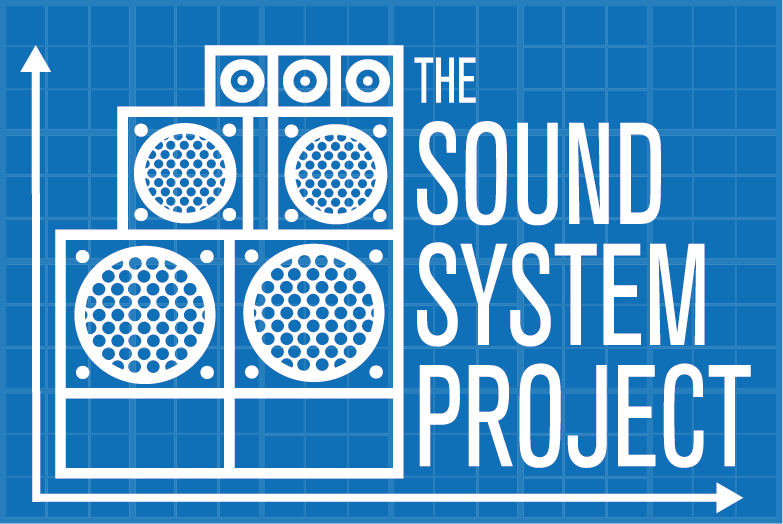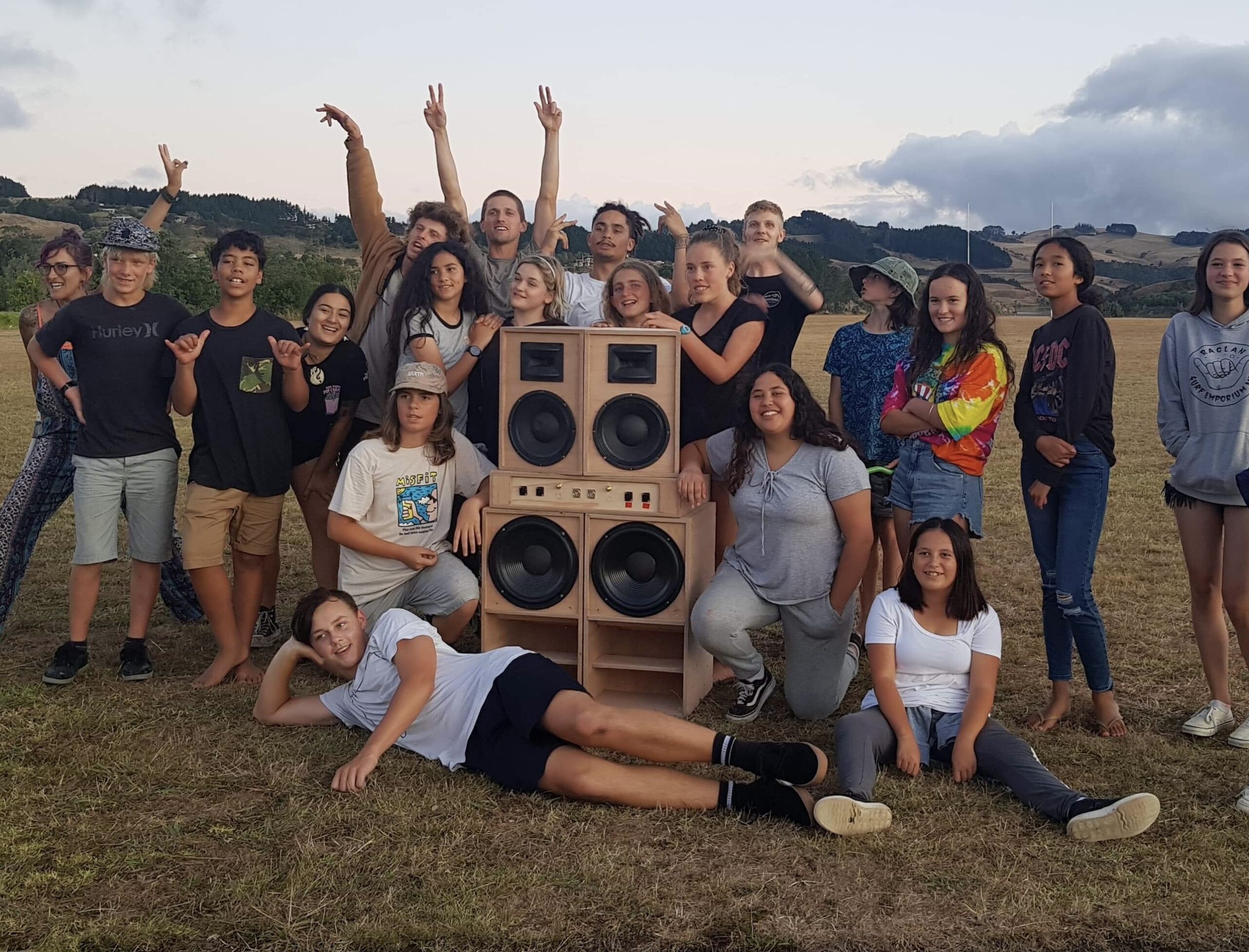When Ezra Collective stepped up to the podium to collect the Mercury Prize last September, drummer Femi Koleoso was emphatic that this wasn’t just a win for the band, or even for jazz, but for something much bigger. “Ezra Collective represents something very special, because we met at a youth club,” he told the room. “This moment that we’re celebrating right here is testimony to good special people putting time and effort into young people to play music.”
If the awards seasons from the past couple of years are anything to go by, Ezra Collective are far from the only artists to travel this route. Young Fathers – who earned three BRIT Award nominations and a spot on the Mercury Prize shortlist for their album Heavy Heavy – met at Lick Shot, an under-16s hip hop night in Edinburgh. The rapper Bemz – winner of DJ Mag’s Breakthrough MC/Vocalist at the Best of British Awards – is an alumnus of Intercultural Youth Scotland. The channel between youth spaces and era-defining music is demonstrably strong.
Yet these same spaces have been decimated over the past decade. Funding for local authority youth provision fell from £1 billion to £408.5 million between 2011 and 2021, according to government research published last month. More than 4,500 youth work jobs have been cut in that time and 750 youth centres have closed. “It’s heartbreaking because someone like myself saw first-hand in HD how important they are,” Koleoso told Channel 4 News last September. “I understand why cuts happen, but I just don’t think it should be in that direction because I think the youth of the country, the youth of tomorrow, everything like that, is the most important thing.”
This loss of youth spaces, as Koleoso points out in the interview, has huge ramifications for communities. According to last month’s government report, decreased spending on youth services was consistently followed by increased incidences of bike theft, shoplifting and posession of weapon offenses (including knife crime). Young people who were engaged in youth groups and spaces, by contrast, “were less likely to engage in anti-social behaviour and crime.”
But the value of youth groups lies in far more than crime prevention. It is also about investing in the lives of young people, both on a personal and professional level – a mission that music is ideally placed to realise. More young people than ever are making music, according to a Youth Music report, with the proportion who play an instrument, sing and produce almost doubling from 39% to 67% since 2006. But what these young people lack is insight into the business of music. Youth Music has identified a gap between music education and the music industry which, if bridged, could help to ensure a strong and diverse pool of talent for years to come. Failure to make that connection, however, could allow music to fall into the culture sector’s old bad habits – namely, attracting a largely London-centric and affluent workforce.
That is where charities like Young Urban Arts Foundation (YUAF) come in. Working from a portable media studio on a double decker bus, YUAF drops into communities living with varying levels of deprivation, where it trains local young people in skills like lyric writing, production and podcasting. Its YUAF Futures programme helps them turn those capabilities into the beginnings of a career, with a six week programme that demystifies the ins and outs of a professional life.
“I do a lot of work with the young people to teach them how to network, how to write an email, or when’s it right to chase up? When should I ask for money? Should I ask for my travel?” says Laurie Charlesworth, YUAF Futures’ Project Manager. “All these things that you only learn through working in an industry.” These workshops are designed to give young people a sort of professional literacy, which allows them to advocate for themselves, make connections and, ultimately, get paid, before following up with work experience placements in the music, film and TV industries. “We’ve worked with everyone from SONY Music UK to Kiss FM and Hospital Records,” says Charlesworth. “We’re giving them almost a bootcamp-esque confidence boost, and then putting them in front of people where they can make a change for themselves.”
Projects like YUAF Futures are especially crucial right now, when the cost-of-living crisis has made it tougher for young workers to break into, and stay in, creative work. Where unpaid internships and balancing side hustles for exposure were once the norm, now rocketing rents, food bills and transport costs have made these unaffordable. In a Creative Mentorship report, 95% said their current role in the creative industries didn’t pay them enough to live comfortably. Another 78% have taken on additional jobs to boost their income. Many are choosing to leave the industry altogether in search of more secure work. ”We know that people with skills that went to uni are struggling,” says Charlesworth, “so these young people are fighting against skilled people with experience, with money, to get jobs.”
For the Soundsystem Project, a charity based in the Scottish Borders, increasing young people’s employability begins with showing them what’s possible in the first place. Teaming up with schools and youth groups in deprived areas all over Scotland, the charity introduces children to the graft behind running a sound system, including building a 12-volt battery-powered rig. “There’s not many examples of people who do this kind of work, especially not professionally,” says Tom Spirals, an MC and one of the project’s leaders. “It’s hard to imagine that you could do something like that if you can’t see it.” Whether they go into music or not, these workshops give young people a vital leg-up as they prepare for work or university. “They do all of the glueing and screwing and electronics. They see the whole thing come together,” says Spirals. “We make beats and write lyrics and get them performing their music, which they release on Spotify, and make music videos for their sound system and give them a sense that they can do something that they thought they couldn’t.”

But The Soundsystem Project’s real value, he continues, lies in the pastoral care it enables. Its first-ever project was at Platform, a community space in Easterhouse in Glasgow, which supported vulnerable young people in transition between school and college. Very often, the participants were carers for their parents, or their siblings, or were shouldering mental health issues of their own, and had outgrown the school environment. The platform gave them a place to work on their qualifications away from the traditional strictures of the education system. “Kids in these areas, in my experience, don’t really have the space where they can be a kid, because they have to deal with adult things,” says Spirals. “Through sound systems, we can create an environment where these guys can relax and experiment or express themselves.”
To keep the workshops free for their participants, the Soundsystem Project relies on a variety of different money pots, including Creative Scotland’s Youth Music Initiative – a chronically precarious setup, with multiple rounds of cuts besetting the funding body in recent years. More than once, Spirals tells us, rumours have circulated that the Youth Music Initiative could be scrapped – the last time being when the Scottish Government released their post-COVID emergency budget. “There was a period of three months where we didn’t know if we’d be able to continue doing what we do, with six different ongoing projects that would just stop,” he says. “It’s never stable, which is ironic because what we want to create for young people is something consistent that they can rely on to access music.” For now, the Youth Music Initiative is safe, though with Creative Scotland recently announcing that demand for its funds has swelled, the Soundsystem Project’s future is far from assured. “We are very lucky and we’re able to work this year,” Spirals tells us. Next year could be different.
Other groups have been less fortunate. In another round of funding applications, the Young Urban Arts Foundation learned that its budget would be cut, leaving it unable to continue its YUAF Futures programme. “There’s just so many people that need it,” says Charlesworth. “We met other people that have funding and there were so many projects, from LGBT projects to refugee and asylum seeker projects.” The solution, she suggests, lies in governments and local authorities digging deep and restoring spending for youth services. “More funding and more opportunities, that’s what we need,” she says. “But also, the work needs to stop falling in the hands of charities and youth workers that are going above and beyond and being paid very little money to run these projects.”
With government provision for youth services in such short supply, it’s groups like YUAF and the Soundsystem Project that are propping the sector up. It seems a cruel irony, then, that the very same cost-of-living crisis they are helping to tackle is also threatening their survival. “I’d love to be able to do it for free,” says Charlesworth. “But unfortunately, the amount of young people that we help, which has been, I think, over 350 so far across the three years – that’s one-to-one work, meeting every week – that just won’t be a thing anymore.”
Losing the services that help young people into employment is bad enough. Without them, we stand to lose a valuable pipeline for tomorrow’s artists, where young musicians might become inspired (and even form award-winning bands). But as Spirals points out, even those who only choose to dabble in music have much to gain from a meaningful investment in youth spaces. “How important music is as an adult for community is just the same for them,” he says. “We need to create real spaces for young people to have real interactions together, especially when times are hard.”


